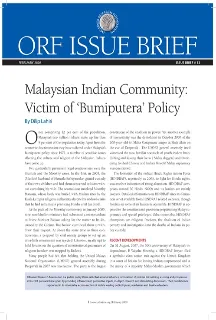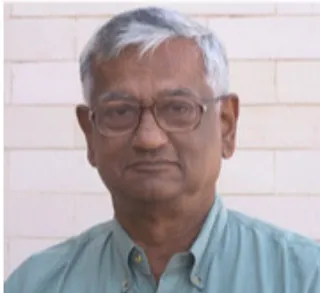Once comprising 12 per cent of the population, Malaysia’s two million Indians make up less than 8 per cent of the population today. Apart from the economic discrimination they have suffered under Malaysia’s Bumiputera policy since 1971, a number of sensitive issues affecting the culture and religion of the Malaysian Indians have come up.
Two particularly prominent legal controversies were the Shamala and the Moorthy cases. In the fi rst, in 2003, the (Muslim) husband of Shamala Sathiyaseelan gained custody of their two children and had them converted to Islam without consulting his wife. The second case involved Moorthy Maniam, whose body was buried with Muslim rites by the Kuala Lumpur religious authorities despite his widow’s claim that he had remained a practicing Hindu until his death.
At the peak of the Moorthy controversy in January 2005, nine non-Muslim ministers had submitted a memorandum to Prime Minister Badawi asking for the matter to be discussed by the Cabinet. But Badawi convinced them to withdraw their request. At about the same time as these controversies, a proposal by civil society groups to set up an inter-faith commission was rejected. Likewise, an attempt to hold forums on the question of constitutional guarantees of religious freedom was stopped by Badawi.
Many people had felt that holding the United Malays National Organisation (UMNO) general assembly during Deepavali in 2007 was insensitive. The party is the largest constituent of the coalition in power. Yet another example of insensitivity was the demolition in October 2007 of the 100-year- old Sri Maha Mariyaman temple in Shah Alam on the eve of Deepavali . The UMNO general assembly itself witnessed the now familiar spectacle of youth leaders brandishing and kissing their keris ( Malay daggers) and threatening to shed Chinese and Indian blood if Malay supremacy was questioned.
The formation of the radical Hindu Rights Action Force (HINDRAF), reportedly in 2005, to fi ght for Hindu rights, was another indication of rising alienation. HINDRAF comprises around 30 Hindu NGOs and its leaders are mainly lawyers. Detailed information on HINDRAF since its formation is not available from HINDRAF related websites, though biodata on some of its leaders is accessible. HINDRAF is opposed to the constitutional provision perpetuating Malay supremacy and special privileges. Other issues that HINDRAF champions are religious freedom, the abolition of Indian poverty and investigation into the deaths of Indians in police custody.
The views expressed above belong to the author(s). ORF research and analyses now available on Telegram! Click here to access our curated content — blogs, longforms and interviews.

 PDF Download
PDF Download



 PREV
PREV


